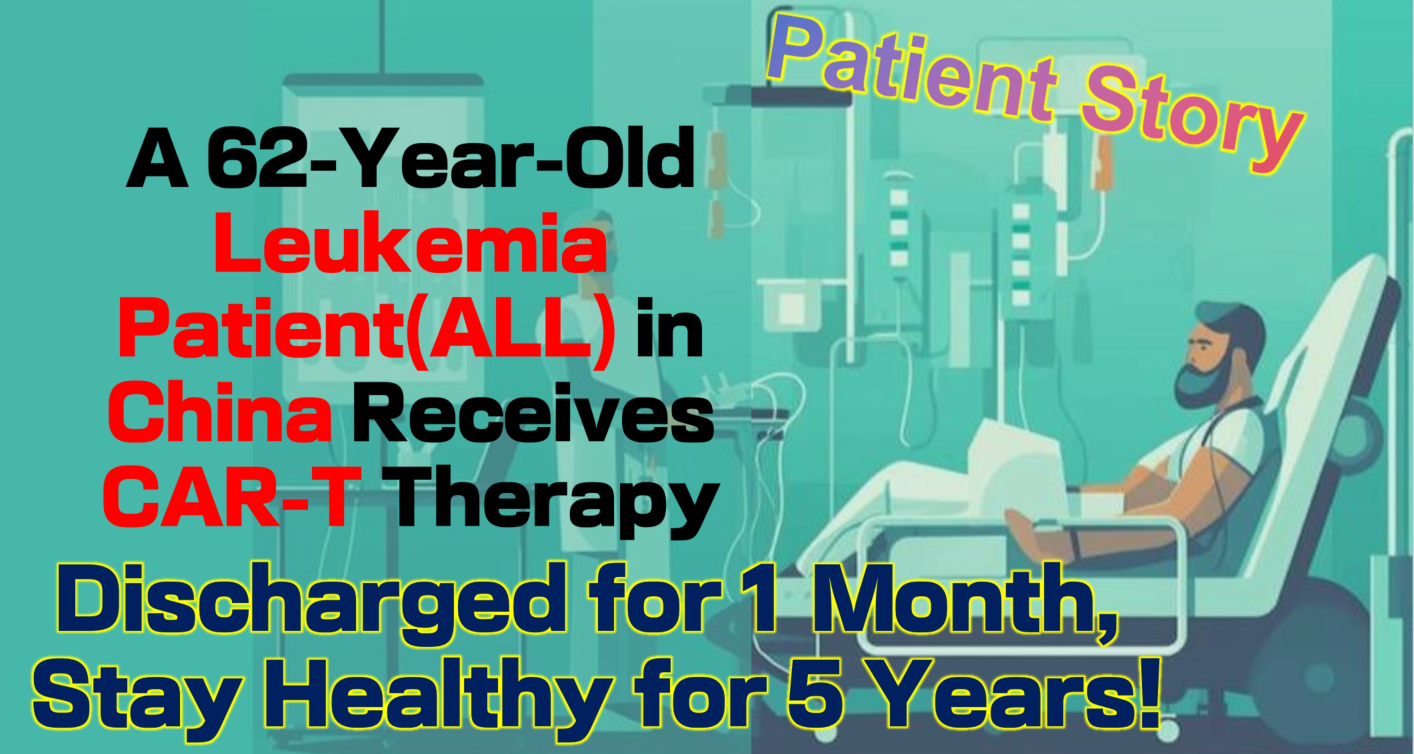A 62-Year-Old Leukemia Patient in China Receives CAR-T Therapy, Discharged After One Month, and Still Healthy After Five Years!
A 62-Year-Old Leukemia Patient in China Receives CAR-T Therapy, Discharged After One Month, and Still Healthy After Five Years!

Patient Story
#Leukemia #CAR_Therapy #CancerSurvivor #ChineseHealthcare#PatientStory
Acute lymphoblastic leukemia (ALL) is a type of leukemia that originates from B or T lymphoid progenitor cells. Leukemia cells proliferate abnormally in the bone marrow, suppressing normal hematopoiesis, leading to anemia, thrombocytopenia, and neutropenia.
Patient Story:
In 2019, 62-year-old Mr. Ke from China sought treatment at multiple hospitals due to weakness and fatigue, but no diagnosis was made. After being transferred to the hematology department and undergoing a bone marrow biopsy, he was finally diagnosed with acute lymphoblastic leukemia (ALL). Despite undergoing numerous chemotherapy sessions, his condition worsened, and his health deteriorated further.
In this challenging situation, with the help of the Advanced Medicine In China team, Mr. Ke transferred to a renowned hospital in Guangdong, China, to try the advanced CAR-T cell therapy. This was a bold decision after two years of failed chemotherapy attempts.
CAR-T Therapy: A New Hope for Leukemia Treatment
CAR-T cell therapy is a groundbreaking treatment that modifies a patient’s T cells to recognize and attack cancer cells. In early 2019, Mr. Ke received CD19 CAR-T therapy combined with a tumor DC vaccine. His T cells were reprogrammed and reinfused to fight leukemia cells.
The treatment process wasn’t easy. Although initially planned for discharge within days, he experienced high fever and lung infections during hospitalization. However, with timely intervention from the Chinese medical team, these complications were effectively managed. Eventually, Mr. Ke was discharged, and follow-up tests confirmed his complete remission.
Surpassing Traditional Therapies and Embracing a New Life
For ALL, chemotherapy is more effective in children, but its efficacy is often limited in adults, especially high-risk patients. Mr. Ke recalls, “After countless failed chemotherapy sessions, I was almost hopeless. Fortunately, CAR-T therapy worked like a miracle.”
Today, five years later, Mr. Ke remains in good health, fully recovered. Chinese hematology experts noted, “For patients who receive early CAR-T treatment, the five-year survival rate now exceeds 70%. We hope that more patients can benefit from this advanced therapy, regain their health, and enjoy life again.”
China’s advancements in CAR-T cell therapy have garnered global attention, with many international patients seeking this cutting-edge treatment. Mr. Ke’s recovery story brings hope to countless patients and highlights China’s innovative achievements in immunotherapy.
